-
 Bitcoin
Bitcoin $102,662.5363
4.85% -
 Ethereum
Ethereum $2,193.0670
19.81% -
 Tether USDt
Tether USDt $0.9999
-0.02% -
 XRP
XRP $2.3038
7.50% -
 BNB
BNB $625.3061
3.85% -
 Solana
Solana $162.5747
9.35% -
 USDC
USDC $1.0000
-0.02% -
 Dogecoin
Dogecoin $0.1948
11.09% -
 Cardano
Cardano $0.7630
11.78% -
 TRON
TRON $0.2574
3.22% -
 Sui
Sui $4.0011
17.05% -
 Chainlink
Chainlink $15.7755
11.92% -
 Avalanche
Avalanche $22.1531
11.42% -
 Stellar
Stellar $0.2965
12.70% -
 Shiba Inu
Shiba Inu $0.0...01431
10.58% -
 Bitcoin Cash
Bitcoin Cash $418.8427
3.36% -
 Hedera
Hedera $0.1947
9.85% -
 UNUS SED LEO
UNUS SED LEO $8.8625
0.49% -
 Toncoin
Toncoin $3.1835
5.09% -
 Hyperliquid
Hyperliquid $23.2143
10.04% -
 Litecoin
Litecoin $94.7248
4.08% -
 Polkadot
Polkadot $4.4824
10.46% -
 Monero
Monero $301.2717
6.79% -
 Dai
Dai $1.0001
-0.02% -
 Bitget Token
Bitget Token $4.4883
5.14% -
 Pi
Pi $0.6881
13.78% -
 Ethena USDe
Ethena USDe $1.0000
-0.06% -
 Pepe
Pepe $0.0...01096
30.81% -
 Uniswap
Uniswap $6.0905
23.37% -
 Bittensor
Bittensor $424.6065
12.59%
What is Stacks(STX) coin?
Leveraging Bitcoin's security, Stacks empowers developers to build smart contracts and decentralized applications that tap into the power and resilience of the world's leading blockchain.
Dec 08, 2024 at 10:41 pm
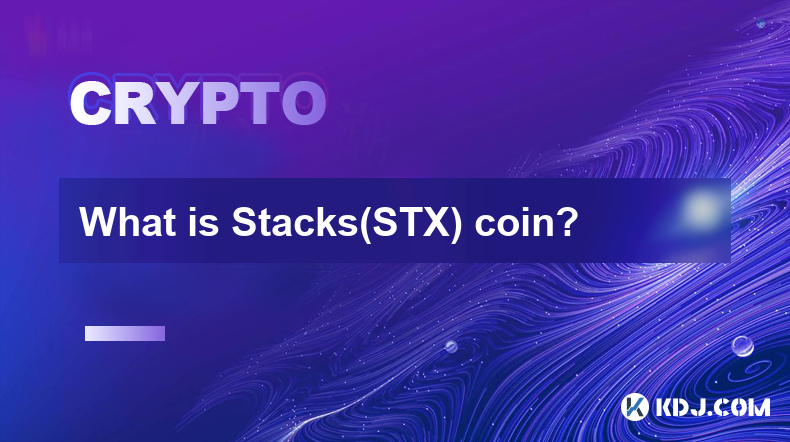
Stacks (STX): A Revolutionary Layer-1 Blockchain for Smart Contracts and DeFi
Introduction
Stacks (STX) is a transformative Layer-1 blockchain protocol that seamlessly integrates with Bitcoin, the world's most robust and secure blockchain network. Stacks enables developers to create and execute smart contracts, decentralized applications (dApps), and DeFi protocols on the Bitcoin blockchain, thereby unlocking vast new possibilities for innovation and financial inclusion.
Key Features of Stacks
- Bitcoin Integration: Stacks leverages the security, stability, and decentralization of Bitcoin, inheriting its unparalleled trust and resilience.
- Clarity Smart Contracts: Stacks introduces Clarity, a specialized programming language tailored for blockchain development, ensuring code correctness and preventing vulnerabilities.
- Smart Bitcoin Contracts: Stacks empowers developers to create smart contracts that interact directly with Bitcoin, allowing for complex financial transactions, programmability, and tokenization.
- Decentralized Applications (dApps): Stacks provides a fertile ecosystem for building dApps that leverage the power of Bitcoin and bring DeFi and other transformative technologies to the mainstream.
- DeFi on Bitcoin: Stacks opens up the vast DeFi ecosystem to Bitcoin, enabling users to access a myriad of financial services, including lending, borrowing, and trading, on the Bitcoin blockchain itself.
Benefits of Using Stacks
- Enhanced Security: By leveraging the Bitcoin blockchain, Stacks inherits its unmatched security, ensuring the integrity and reliability of smart contracts and dApps.
- Proven Stability: Bitcoin's decade-long existence attests to its stability and resilience, which Stacks inherits, providing developers with a solid foundation for their projects.
- Developer-Friendly Environment: Stacks offers a comprehensive toolset and a supportive community, making it accessible for developers to build innovative solutions on the Bitcoin blockchain.
- Cross-Chain Interoperability: Stacks facilitates interoperability with other blockchains, enabling seamless connectivity and the exchange of value across different ecosystems.
- Mass Adoption Potential: Leveraging Bitcoin's vast user base and global recognition, Stacks has the potential to drive mass adoption of smart contracts and DeFi on the most established blockchain network.
How Stacks Works
Stacks operates on a two-layer architecture:
- Layer 1: The Stacks blockchain, built on top of Bitcoin, enables smart contract execution and dApp development.
- Layer 2: The Clarity Clarity Virtual Machine (CVM) provides a secure environment for executing smart contracts.
Ecosystem and Applications
The Stacks ecosystem is thriving and rapidly expanding, with numerous projects and dApps leveraging its unique capabilities:
- DeFi Protocols: dApps for lending, borrowing, and trading on the Bitcoin blockchain.
- NFTs: Unique digital assets and collectibles minted and traded on the Stacks blockchain.
- Web3 Wallets: Software wallets like Hiro and Xverse, enabling users to store and manage their STX tokens and interact with Stacks dApps.
- Developer Tools: A suite of tools and libraries assisting developers in building and deploying smart contracts and dApps on Stacks.
Conclusion
Stacks (STX) is a pioneering Layer-1 blockchain that revolutionizes the development of smart contracts and DeFi applications on the Bitcoin blockchain. Its unique features, coupled with its unwavering security, provide developers with a robust and developer-friendly environment to drive innovation and bring the transformative power of DeFi to the most established blockchain network in the world.
Disclaimer:info@kdj.com
The information provided is not trading advice. kdj.com does not assume any responsibility for any investments made based on the information provided in this article. Cryptocurrencies are highly volatile and it is highly recommended that you invest with caution after thorough research!
If you believe that the content used on this website infringes your copyright, please contact us immediately (info@kdj.com) and we will delete it promptly.
- The PEDIGREE® brand launched PEDIGREE® DRIZZLERS™ Sauce, a mealtime sauce made just for dogs that brings bold flavors to every bite
- 2025-05-09 10:06:38
- The GENIUS Act Failed to Pass Cloture in the United States Senate on May 8
- 2025-05-09 10:06:38
- The 2025 Meme Wave Has Arrived: FloppyPepe (FPPE) Is Making Serious Noise
- 2025-05-09 10:01:06
- Stellar (XLM) Shows Renewed Momentum, Up 10% in the Last 24 Hours
- 2025-05-09 10:01:06
- Tron (TRX) Prepares for the Next Chapter as Ruvi, an Emerging Crypto Superstar, Captures the Spotlight
- 2025-05-09 09:55:12
- Dogecoin price regained and moved past $0.17
- 2025-05-09 09:55:12
Related knowledge
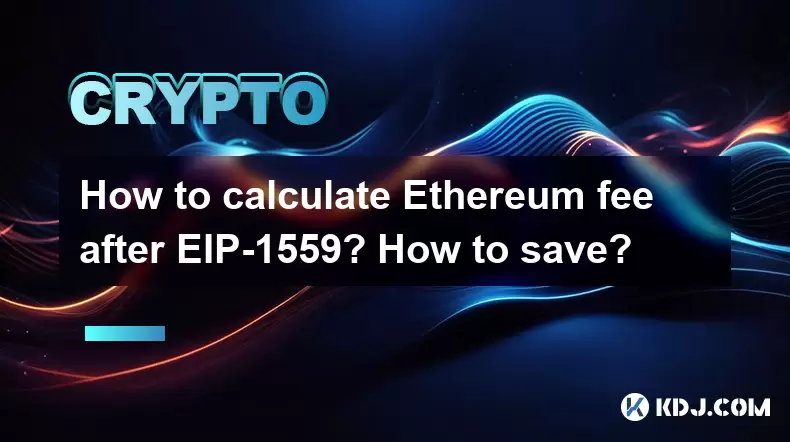
How to calculate Ethereum fee after EIP-1559? How to save?
May 09,2025 at 08:01am
The introduction of EIP-1559 in August 2021 brought significant changes to the Ethereum network's fee structure, revolutionizing how users interact with transaction costs. This article will delve into the specifics of how to calculate Ethereum fees post-EIP-1559 and offer strategies to save on these fees. Understanding EIP-1559 and its ComponentsEIP-155...
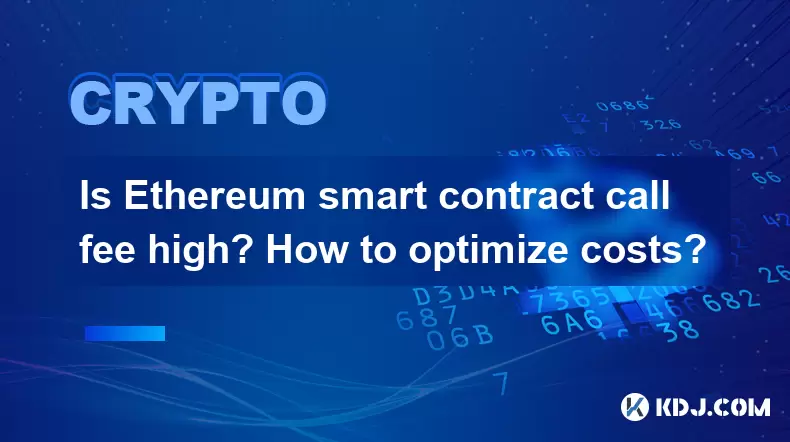
Is Ethereum smart contract call fee high? How to optimize costs?
May 08,2025 at 09:35am
Is Ethereum Smart Contract Call Fee High? How to Optimize Costs? The world of Ethereum smart contracts has revolutionized the way we think about decentralized applications and blockchain technology. However, one of the most frequently discussed topics within this realm is the cost associated with executing smart contract calls. In this article, we will ...
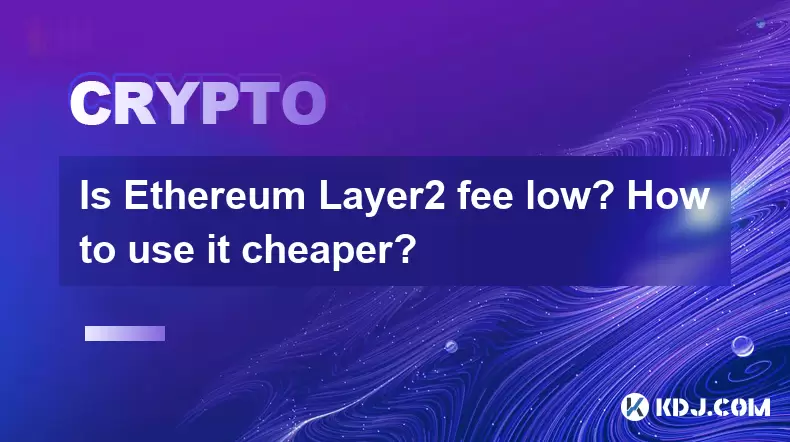
Is Ethereum Layer2 fee low? How to use it cheaper?
May 08,2025 at 03:56am
The question of whether Ethereum Layer 2 solutions offer lower fees and how to use them more economically is a topic of great interest within the cryptocurrency community. Ethereum's Layer 2 solutions have been developed to address the high transaction fees and scalability issues associated with the main Ethereum network. In this article, we will delve ...

How to calculate Ethereum network fee? How to reduce transaction costs?
May 08,2025 at 02:15am
Understanding and managing Ethereum network fees is crucial for anyone involved in transactions on the Ethereum blockchain. The network fee, also known as gas fee, is the amount of Ether (ETH) required to successfully conduct a transaction or execute a smart contract on the Ethereum network. Calculating these fees and finding ways to reduce them can sig...
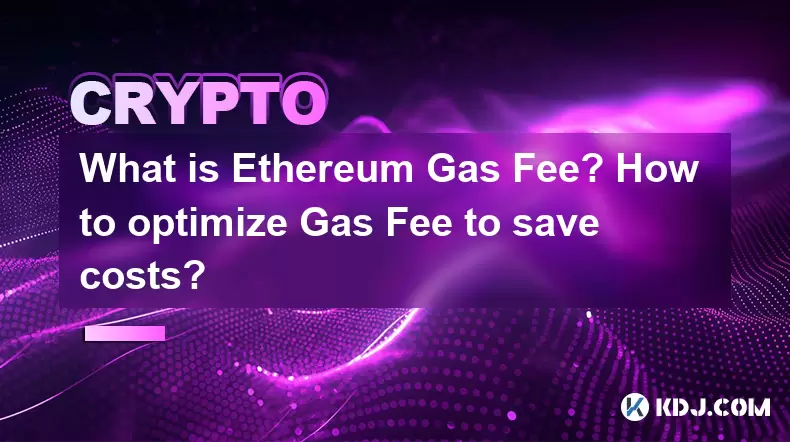
What is Ethereum Gas Fee? How to optimize Gas Fee to save costs?
May 08,2025 at 03:43am
Ethereum gas fees are a crucial aspect of interacting with the Ethereum blockchain. Understanding and optimizing these fees can significantly impact the cost-effectiveness of transactions and smart contract interactions. In this article, we will delve into what Ethereum gas fees are, how they are calculated, and provide detailed strategies for optimizin...
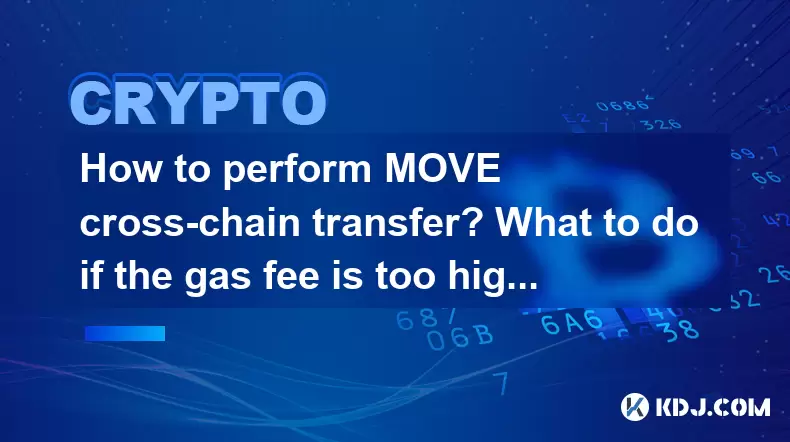
How to perform MOVE cross-chain transfer? What to do if the gas fee is too high?
May 07,2025 at 08:03pm
Introduction to MOVE Cross-Chain TransferCross-chain transfers have become an essential part of the cryptocurrency ecosystem, allowing users to move assets between different blockchain networks. One of the popular protocols for achieving this is the MOVE cross-chain transfer. This article will guide you through the process of performing a MOVE cross-cha...

How to calculate Ethereum fee after EIP-1559? How to save?
May 09,2025 at 08:01am
The introduction of EIP-1559 in August 2021 brought significant changes to the Ethereum network's fee structure, revolutionizing how users interact with transaction costs. This article will delve into the specifics of how to calculate Ethereum fees post-EIP-1559 and offer strategies to save on these fees. Understanding EIP-1559 and its ComponentsEIP-155...

Is Ethereum smart contract call fee high? How to optimize costs?
May 08,2025 at 09:35am
Is Ethereum Smart Contract Call Fee High? How to Optimize Costs? The world of Ethereum smart contracts has revolutionized the way we think about decentralized applications and blockchain technology. However, one of the most frequently discussed topics within this realm is the cost associated with executing smart contract calls. In this article, we will ...

Is Ethereum Layer2 fee low? How to use it cheaper?
May 08,2025 at 03:56am
The question of whether Ethereum Layer 2 solutions offer lower fees and how to use them more economically is a topic of great interest within the cryptocurrency community. Ethereum's Layer 2 solutions have been developed to address the high transaction fees and scalability issues associated with the main Ethereum network. In this article, we will delve ...

How to calculate Ethereum network fee? How to reduce transaction costs?
May 08,2025 at 02:15am
Understanding and managing Ethereum network fees is crucial for anyone involved in transactions on the Ethereum blockchain. The network fee, also known as gas fee, is the amount of Ether (ETH) required to successfully conduct a transaction or execute a smart contract on the Ethereum network. Calculating these fees and finding ways to reduce them can sig...

What is Ethereum Gas Fee? How to optimize Gas Fee to save costs?
May 08,2025 at 03:43am
Ethereum gas fees are a crucial aspect of interacting with the Ethereum blockchain. Understanding and optimizing these fees can significantly impact the cost-effectiveness of transactions and smart contract interactions. In this article, we will delve into what Ethereum gas fees are, how they are calculated, and provide detailed strategies for optimizin...

How to perform MOVE cross-chain transfer? What to do if the gas fee is too high?
May 07,2025 at 08:03pm
Introduction to MOVE Cross-Chain TransferCross-chain transfers have become an essential part of the cryptocurrency ecosystem, allowing users to move assets between different blockchain networks. One of the popular protocols for achieving this is the MOVE cross-chain transfer. This article will guide you through the process of performing a MOVE cross-cha...
See all articles






















































































